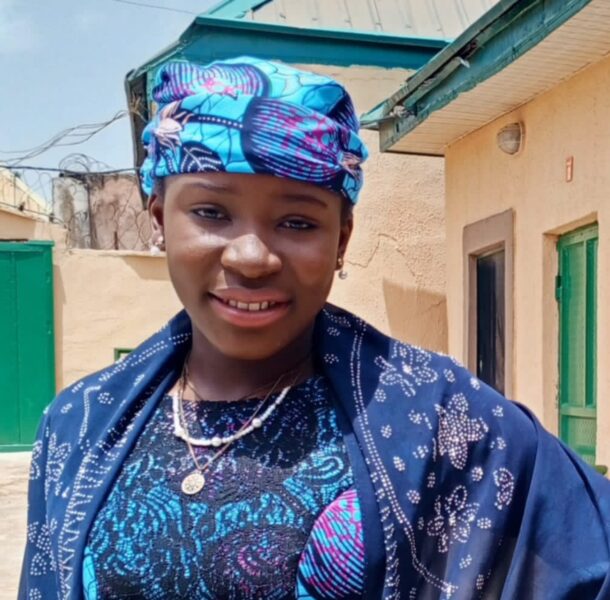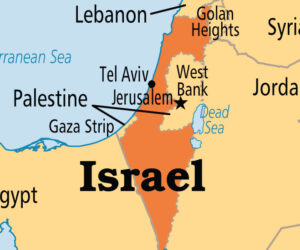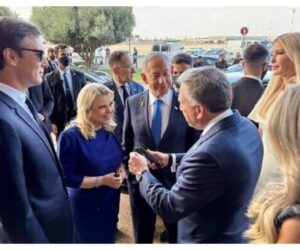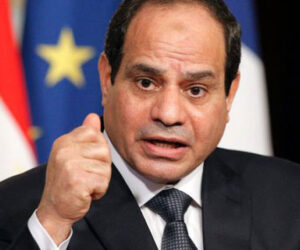Study the Room
“You got it?” I heard a voice and saw Zain staring at the screens and announcing: “A1 to A10, please, report to the dining hall.”
I checked my smart watch and saw it was 1:30pm. I’d spent close to two hours yet. Zain removed his head set and asked.
“You got it?”
“Yes. I did.”
“Follow me. Freilich will arrive shortly.”
He went through another door and I saw it opened into a workspace. Different personnel were typing like robots. Most had coffee by their side and others tea.
“Welcome to Central Command Tower, motherboard of the prison.” Zain said
A staff hurried past with a stack of paperwork. All I could do was stare in awe. The wall parallel to me was in fact a large glass window, giving the room the look of an airport terminal.
“But why is it low?”
Zain laughed. It sounded like bell chimes.
“This, Ms José, is the ground floor. There are 13 more storeys if you wish to prolong your interview.”
“Um…no.” I said because I was afraid of height.
But he was already whispering to a staff. The staff then adjusted her headset and announced in a thick Indian accent.
“Freilich Van Gogh, please, be in the auditorium before 2:00pm.”
That was my cue to leave.
“Thank you for everything, Sir.”
“No problem, Ms. José.”
I strolled to the right exit door, walked through one of the cloisters and I was back in the main building. It was now crowded as far right as I could see, the inmates having lunch. Some looked pitiful, but most ruthless and homicidal. I walked into a room with an ‘AUDITORIUM’ placard written on the door. I opened it and went in. This room was very different. Compared to the modernity of the other facilities I’d seen, this one was ancient. It was an 18th Century Gothic chamber with a high arched ceiling. The walls were stone grey and the air ancient. There were four gargoyles in the corner of the room perched on Grecian pillars.
There were 3 large arched windows which gave the chamber its light source. The only modernity in the chamber was a lone table and two chairs at opposite sides at the centre of the room. On it was a Styrofoam cup labelled ‘Espresso’ with a note from it.
‘Hope it prepares you. Z.’
That was nice of Zain. I dropped my bag on the table, picked out my phone, notepad and pen, then I sat on the chair facing the door. Because I still had time before Mr. Gogh arrived, I took to studying details of the room.
The ceiling had a design of concentric square pattern. Because of the position of the windows, a dark shadow was cast on all four corner of the room. As I peered closer, it came to my notice that there were 4 guards camouflaged in the shadows beside the pillars. This made me remember John Rider. The floor was smoothly cemented with fragments of tiles arranged in a circular concentric.
I was looking at the room when I heard the door creak.
I Meet Freilich
The man who came in definitely lived up to his reputation. He had a tall and lean stature, with unnaturally white skin. He had steel blue eyes, a hawkish long nose and a thin mouth that wore a permanent scowl.
There was a vein that ran from under his crew cut to the left side of his face and a bluish scar that ran across his right eye. He was dressed in a black anorak, jean trousers and baseball boots. I stood up.
“Good afternoon, Mr. Gogh.”
“Skip the formalities.” He said and raised a hand irritably. “Call me Freilich.”
I sat down.
“What do you want?” he was still standing as he asked me this.
“I came to interview you,” I replied calmly.
“And why would I believe you?”
Tactic. I needed to use it now.
“I worked for the CNN,” I smiled.
The tightness in his jaw loosened.
“Ok.” He took the chair opposite me, crossing his arms and legs.
I turned on the sound recorder and opened my notepad and pen.
“So, Mr. Freilich, would you tell us more about your background?”
“Well um, where to begin.” He sighed. “My lineage is very complicated…but um, I’m very proud of it. My father’s a retired Major-General, my grand-father, a well-known eh, politician but unfortunately he’s dead. My great-grandfather, Deuce van Gogh, was a well-known figure as he was part of the Nazi government, for which I’m very proud of-”
“You say it was oppressive,” I cut in “how’s that something to be proud of?”
“We have rights no other person has. We decide who gets what-”
“Such as what? The right commit mass murder, genocide, massacred innocent children, calling them terrorists? Are those ‘rights’?” I air-quoted the last part. “Because I don’t think it is.”
His reply was silence. I’d probably given him a slap on the face.
“Either ways, since you have no answer to that,” I said, “I’ll continue. Earlier, you said, I’ll quote your words: ‘We have rights no other person has.’ What did you mean by ‘we’?”
“The Israelites, of course.”
“Even if your ancestry is German, Nazi to be precise?” I was bewildered.
“My mum’s actually from the state of Israel, a nuclear scientist in Dimona, my hometown. My grandmother and maternal grandfather were survivors of the holocaust.”
“Sorry to interrupt, but this holocaust stirs the silt in the sea of questions. How the captor married the captive” I saw him flinch and continued, “is another story, but um…you said something about only ‘Israelites’ in your term and words as ‘having rights, no other person has.’ What about the Western world, the United States to be precise, in terms of having rights? Surely, they are more superior and have more influence. What about them?”
“Let me correct you, Miss,” he looked impatient. “First of all, we have the right to choose who we associate with-”
“Well, let me tell something. Stories today show that most of your people don’t associate with other people because they are not Jewish. Or is there an exception?” my fast talk was giving me the upper hand.
“Well, that’s the point you’re missing,” he emphasised by hitting the side of his right palm on his left palm. “We have rights. Amongst that is to choose whoever we want to associate with-”
“Even if they chased you while you seek refuge?” I raised a brow and saw his expression harden. “I understand laws of today, Sir.” I continued: “They are rigid and will apply to well…almost everyone. But with you um…Israelis in this case no offense, I understand that most of you people, according to my statistics, 98% are apathetic. A law is set by you, but you twist it to your benefit or to suit the one you favour. You befriend the Western world, again US to be precise, ‘breaking’ your own rules, in the name of receiving wealth, a pillar and so much more. But don’t you think there is an agenda they are planning behind your state. Of course, they may smile, but don’t you and state suspect anything?”
Freilich sighed. Apparently, I was giving him a hard time.
“Ma’am, I was the head of one of the top mercenaries. Believe me, mercenaries get more information and I’ve heard nothing about an agenda. So, yes.”
This is why Israel will never be a sovereign nation like Iran.
I moved on to the next.
“It is well known to you that, of course, being a mercenary, and you saying that um…you have more information. Israel bombed Iran’s nuclear facility, killed their top scientists and their families. Why was that?”
“Iran’s nuclear facility is a threat-”
“Even though they denied ever continuing production?” I argued.
“-and, and I think the world knows that-”
“Some people are thinking otherwise. I’m sorry, but people are no longer buying yours and the US’s bait.”
“Ma’am, do you count yourself in that category?”
“Yes,” I answered frankly. “I do.”
“Then know you’re wrong. Israel’s doing this for the world’s interest-”
“I don’t think so. Hitler killing Jews for the world’s sake, I can believe. But Israel only does things for their own interest and they run back to the US for cover when their airspace becomes meteor wallpaper. Majority of the world is seeing this. Sorry, but you can’t sip a river forever.” I waited for his response.
After some minutes of silence, he said:
“We do have proof that Iran did want to build a nuclear weapon, but with our allies’ help, we did stop them.”
Change of subject. Seriously! This guy’s got issues.
“And killing their families. How’s that helping the world, claiming innocent souls?” I was being accusative here.
He was quiet on this one, so I continued.
“Genocide, massacre and bloodshed is seen as a trait in the state of Israel. Why’s that?”
“We do not commit genocide-”
“What is it then?”
“-and we are simply defending our ourselves. These people are our enemies.”
“How?” I shrugged my shoulders “are they the enemy? Don’t you think US here in the enemy and the West? Because from my point of view, Iran’s not the enemy. The West urges your state, promising deals and giving of arms to go into war and when they see it will harm them, they withdraw, leaving Israel as the punch bag. Doesn’t this tell you something that the west just wants the destruction of Israel and not its thriving? Because in my opinion, they’re one of the reasons that’ll hasten Israel’s doomsday.”
“I believe not what you’re saying as we are capable of defending ourselves.”
“Then, why go to US?”
“We are the ones offering and not vice-versa.”
“Then, why is it that when US said ceasefire, Netanyahu agreed, even though Iran didn’t.”
“In every war, there must be a ceasefire for both sides to restock and be armed to the teeth for another battle.”
“So, you do accept that Israel is defeated as Iran doesn’t even need a ceasefire. Isn’t this meant to be a warning?”
“First of all, Israel didn’t lose. We were just playing by the rules-”
“But Israel didn’t when getting nuclear arms. Which reminds me, what were the IAEA doing in Iran? I mean why was it when you were at war with Iran that IAEA was there?”
“The job of the IAEA is to make sure every one of its members are going according to the rules-”
“But then, what about your ally’s inside, who are they?”
“IAEA,” he said absent-mindedly.
“I-A-E-A.” I wrote and scribbled other things.
“No, that was the slip of the tongue.”
“No, Mr. Freilich. I’ve raised all this question in your benefit of doubt. So, it was a slip of the truth.”
I smiled and snapped my notepad shut. Standing up, I turned off the recorder, carried my backpack and headed towards the door. I was about to open it when I heard Freilich’s voice:
“You’ll never convince the world.”
“No,” I replied confidently. “This piece of information will be for those who understand,” I said.
I opened the door and went out.
Produce and influence
I was happy with the information I’d gotten as I walked into the administrative block. I saw Khan and the Rajs on the screen. As soon as I entered, they all turned their heads.
(Concluded)
Above is an excerpt of a novel written by Khadija, a student of Dialogue Academy, Kaduna.








